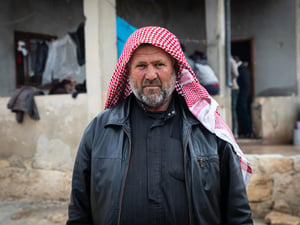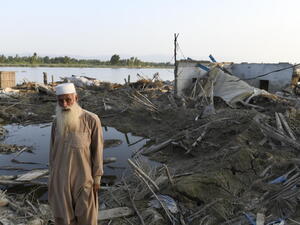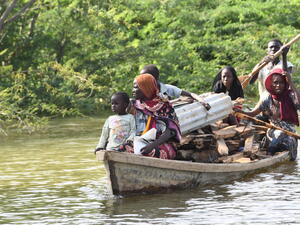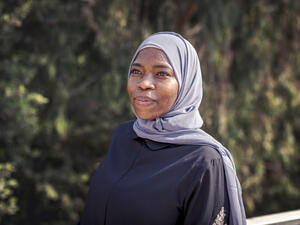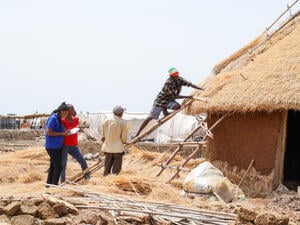School and shelter for Pakistan's flood victims
School and shelter for Pakistan's flood victims
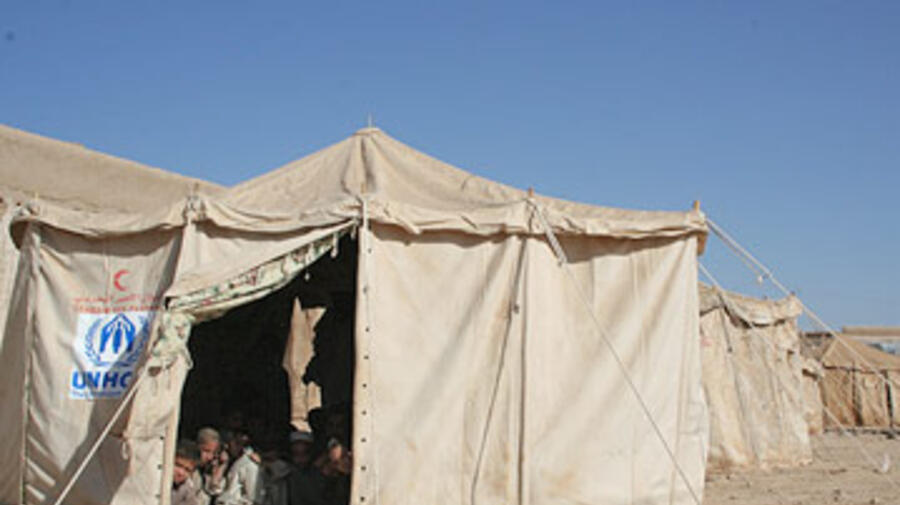
Flood-affected Afghan children attend classes in a makeshift school in Chaghi camp in Pakistan's Balochistan province.
CHAGHI CAMP, Pakistan, October 22 (UNHCR) - Looking at the heap of dirt, it's hard to believe this used to be part of a school. The collapsed roof, cracked walls and flimsy remains of the building tell the story of merciless waters that washed away everything in their path when Cyclone Yemyin hit Pakistan in June.
Four months later, life is slowly returning to normal, but not fast enough for some of the 2 million people affected in Balochistan province, south-western Pakistan. Out of the 29 districts in the province, 20 were affected by the floods. The floodwaters left 213 people dead and washed away standing crops and government infrastructure worth 4,586 million rupees (nearly US$76.5 million).
Seven-year-old Shukriya used to go to the old mud-built primary school in Chaghi Afghan refugee camp before it was levelled in the recent floods. To restore academic activities in the camp, UNHCR recently provided Red Crescent tents to the school to be used as temporary classrooms until the new school building is completed.
"I like sitting in the tent, but sometimes it gets very hot and congested. It's because we are many and the space is little," said Shukriya, who is in second grade.
Her teachers have other reasons for concern: "Children are naughty and sometimes they get nasty. I am worried one day they will set the tent on fire," said Mualim Maherban. "They are more interested in the tent than in their lessons. I urge the concerned people to accelerate construction work on the new school building, so that we can shift there soon."
In Chaghi district, 444 kilometres north of the Balochistan provincial capital of Quetta, 150 Afghan refugee families and 154 local families were affected by the recent flooding. The government estimates that in Chaghi alone, 1,500 houses were partially destroyed while 560 were completely washed away. UNHCR and partner organizations such as Islamic Relief, Society, and Save the Children (US) distributed tents, plastic sheets, plastic mats, blankets, quilts, kitchen sets and jerry cans to the flood-hit families in the district.
Under the joint United Nations relief effort, UNHCR rushed every possible support, initially to areas where Afghan refugees were living. But in view of the magnitude of the disaster, the agency quickly extended its support to the local population. With the help of its partners, it dispatched emergency supplies to 10 affected districts in the province, among them 2,851 tents, 47,291 plastic sheets with 5,500 bamboo poles, 5,947 plastic mats, 9,598 blankets, 100 quilts, 1,930 kitchen sets and 6,000 jerry cans.
"We are thankful to the international community for their support towards the flood affected. Without their support, we would not have been able to provide quick relief to the affected population," said Khuda Bakhsh Baloch, the director general of the Provincial Disaster Management Authority.
He noted that relief efforts are now in phase two - the early recovery phase in which all the affected people who have lost their livestock or whose agricultural lands have been destroyed will be compensated with livestock and seeds for the new planting season. The government estimates that 167,021 livestock were killed and 401,046 acres of agricultural land damaged.
"We are working on strengthening the capacity of all organizations, to make them capable of coping with any sort of natural calamities," noted Baloch, adding that the relief work would take at least six more months to bring life back to normal.
In September, UNHCR received a donation of €500,000 (approximately US$600,000) from Finland and an additional NZ$500,000 (approximately US$372,000) from New Zealand for flood relief. These contributions were used to purchase much needed plastic sheets and bamboo poles to be distributed to the affected population as part of a shelter package.
Despite the severity of the catastrophe, life has a way of moving on as routine activities resume. In the flood-hit areas, people have already started picking up the threads of their lives. Those with agricultural land are levelling their fields for the new seasonal crops. Houses are being rebuilt; those who can afford it are helping themselves and those not yet in a position to rebuild their homes are living in temporary shelters and waiting for the break of a new dawn.
By Duniya Aslam Khan in Chaghi Camp, Pakistan

